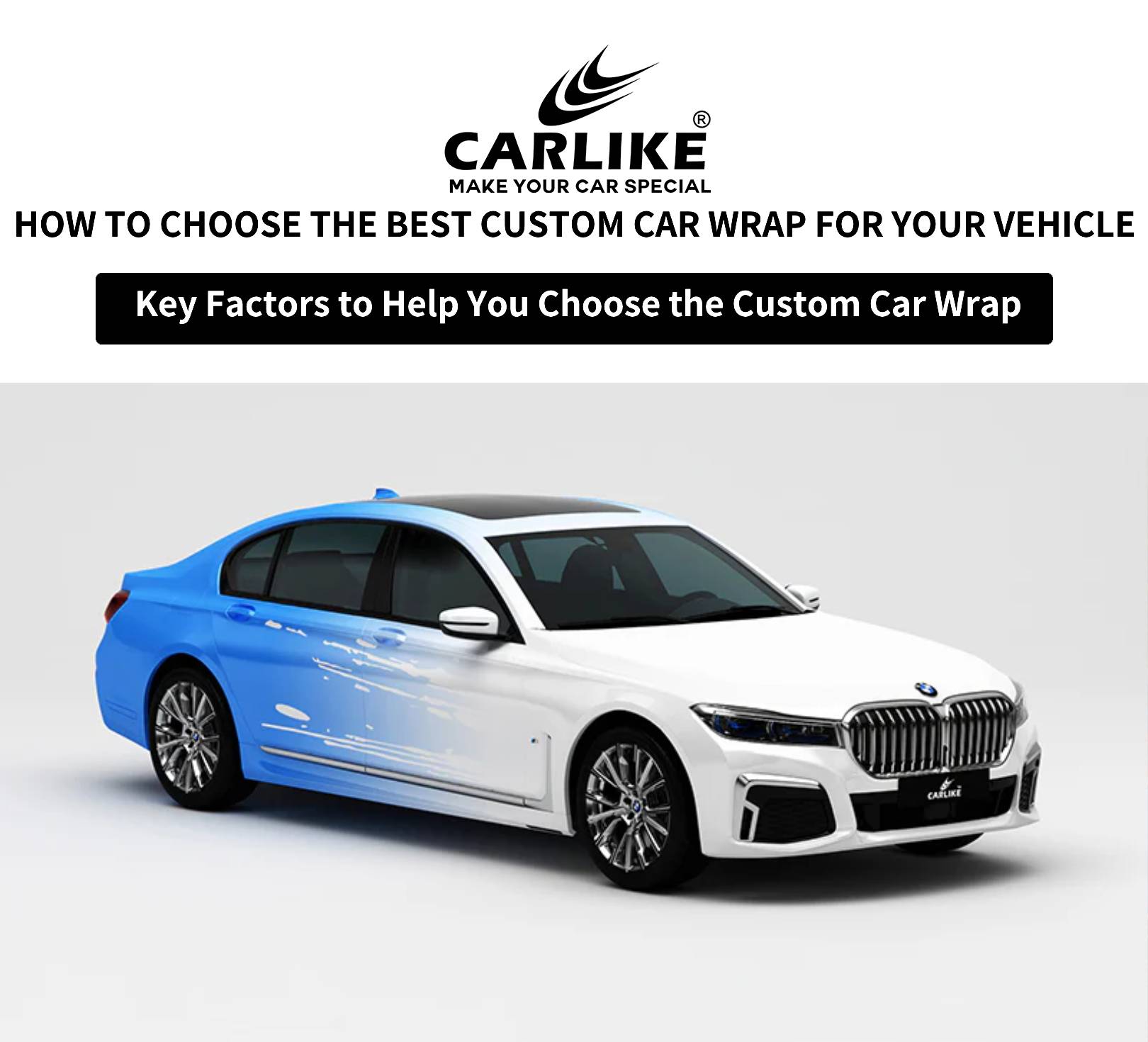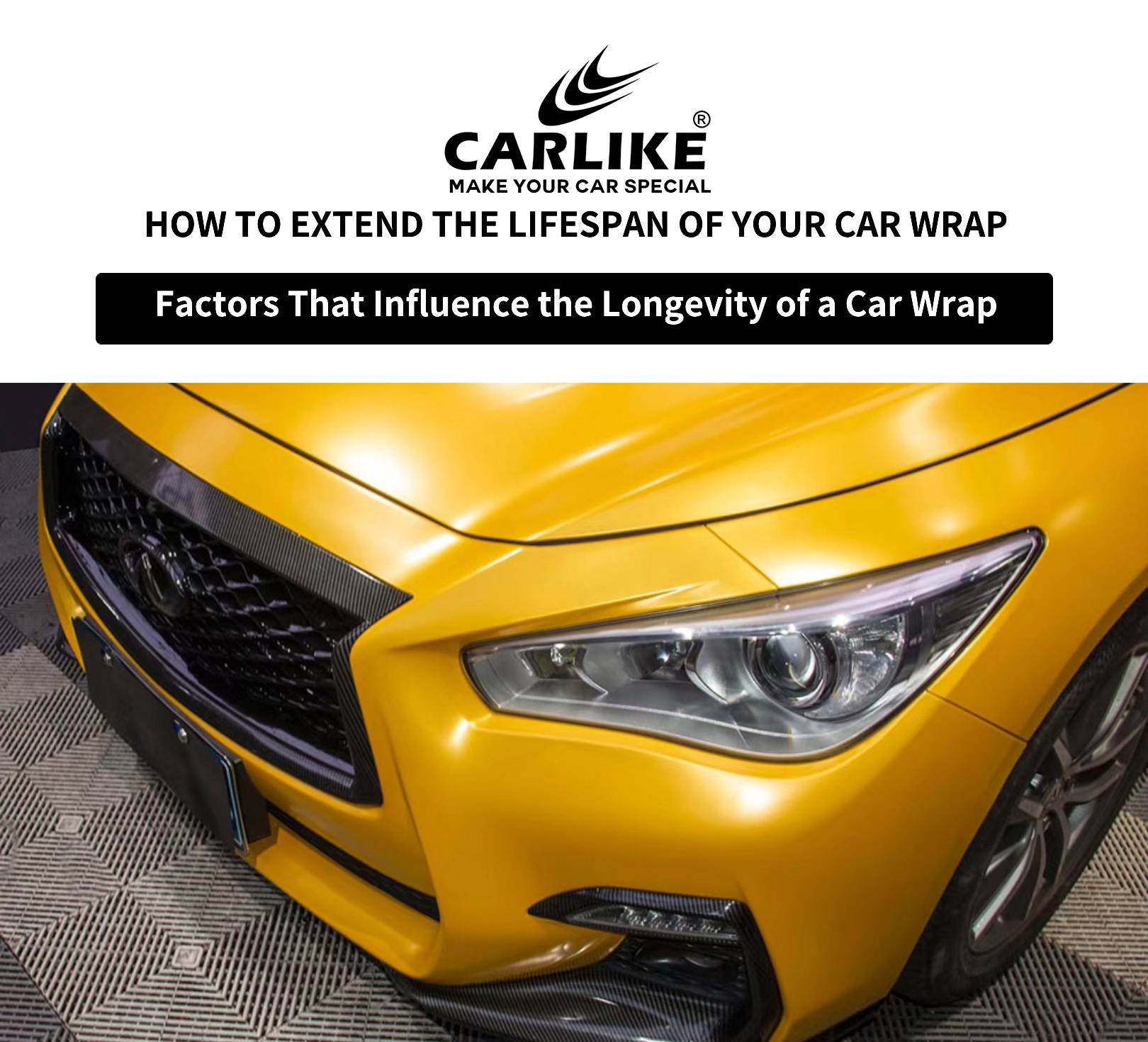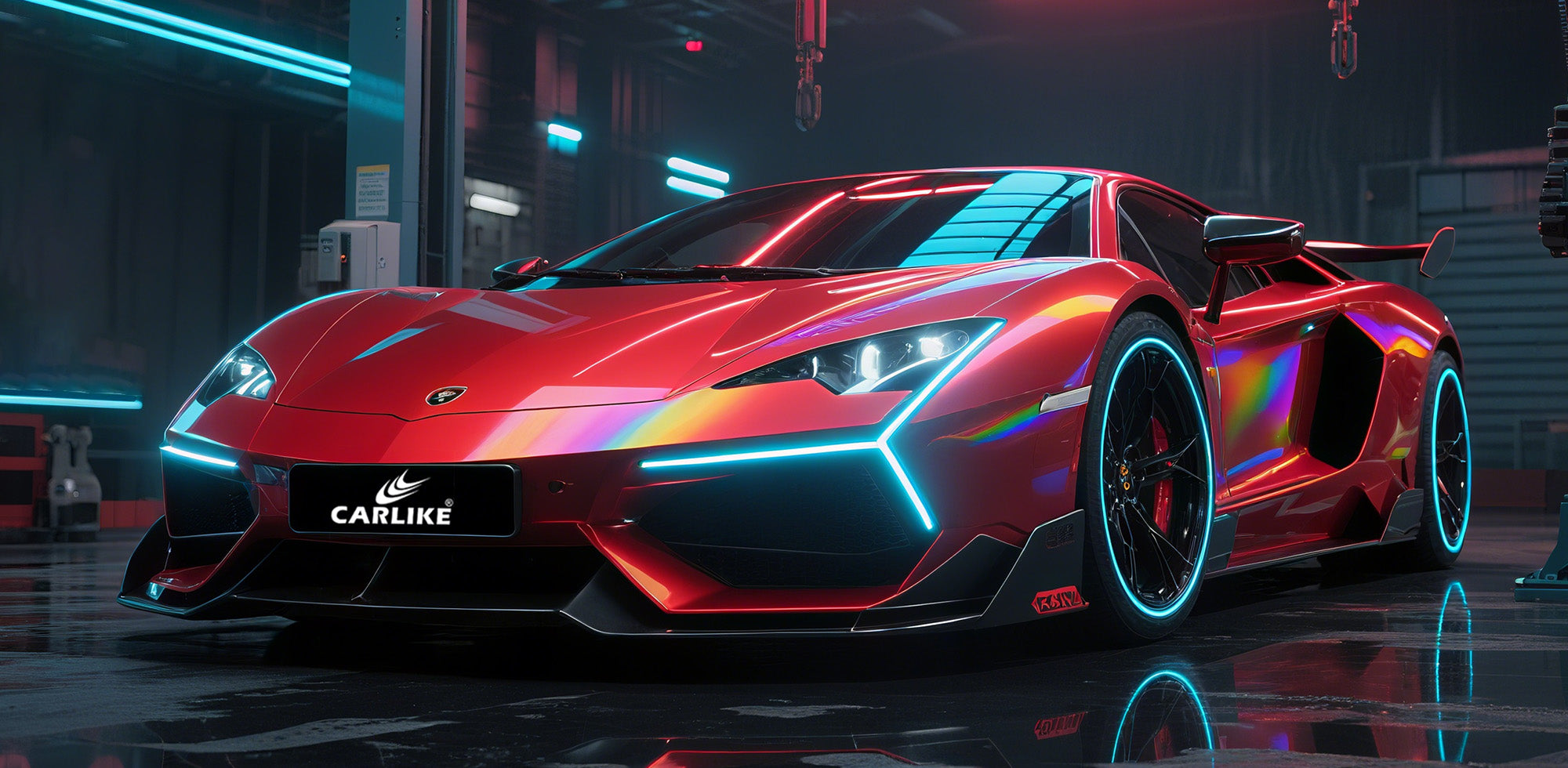ABOUT CARLIKE
CARLIKE® launched in 2012, mainly focus on premium car wrapping vinyls, with rich colors and stylish designs. High performance with economic price is always the persuit of CARLIKE®.
CARLIKE-Make Your Car Special.
1. Introduction of Custom Car Wraps
In the realm of automotive customization, custom car wraps have emerged as a versatile and expressive tool for vehicle owners seeking to make a distinctive statement. These wraps, typically made from vinyl, serve both aesthetic and practical purposes, offering a customizable outer layer that can transform the look of any vehicle. From sleek matte finishes to vibrant patterns and even textured designs, the options are as varied as the imaginations of those who apply them.
Definition and Purpose of Custom Car Wraps
A custom car wrap is a specialized vinyl covering that adheres to the exterior of a vehicle, effectively altering its appearance without the permanence of paint. Beyond aesthetics, these wraps can serve multiple functions: protecting the original paint from scratches and weathering, promoting businesses through branded designs, or simply reflecting personal style preferences. This adaptability makes them popular among car enthusiasts, businesses, and individuals alike.
Growing Popularity and Diverse Applications
Over recent years, custom car films have surged in popularity, driven by advancements in vinyl technology and the desire for unique vehicle aesthetics. They're not just for luxury or sports cars; everyday commuters, delivery vehicles, and even entire fleets are embracing films to stand out on the road. Moreover, the applications extend beyond personal vehicles to include promotional films for businesses, temporary color changes for special events, and even artistic expressions that turn cars into moving canvases.
As we delve deeper into the world of custom car films, it becomes clear that their appeal lies not only in their visual impact but also in their versatility and practicality.

2. Factors Influencing Cost
When considering the investment in a custom car vinyl, several factors come into play, each significantly impacting the overall cost. From the type of film selected to the complexity of the design, understanding these elements can help you make an informed decision tailored to your needs and budget.
Type of Wrap
The type of film is one of the biggest cost drivers. Basic vinyl films are generally more affordable, providing a sleek and durable finish, while specialty films, such as chrome, matte, or satin finishes, tend to command higher prices due to their unique textures and visual effects. Specialty options may also require more labor and precision, further influencing the cost.
Vehicle Size
The size of the vehicle is another critical factor. Wrapping a compact car will naturally be more cost-effective than wrapping a larger vehicle like an SUV, truck, or van. Larger vehicles require more material and take longer to wrap, which increases both material and labor costs.
Design Complexity
The complexity of the design plays a major role in pricing. A simple, single-color film is much easier and quicker to apply compared to intricate, multi-color, or custom-printed designs. Intricate designs with detailed graphics, branding, or patterns may require more precision, time, and skill, raising the labor costs.
Material Quality
The quality of the vinyl used also affects the cost. Standard vinyl films are more affordable, but they may not offer the same durability, finish, or longevity as premium options. Higher-grade vinyls, which offer better UV protection and longer-lasting results, come at a premium price but provide greater long-term value.
Labor Costs
Labor is another significant factor in the total cost of a custom car vinyl. Hiring a professional installer ensures a high-quality finish with minimal risks of bubbles or wrinkles, but it comes with higher labor fees. Alternatively, a DIY vinyl can save money on installation, though it requires time, effort, and a certain level of expertise to achieve professional-looking results.
Understanding these factors can help set realistic expectations when budgeting for a custom car film and ensure you choose the right combination of options that align with your goals and financial considerations.
3. Cost Breakdown
When planning for a custom car wrap, it's essential to consider not just the base price of the wrap, but also the various costs that can arise throughout the process. Below is a detailed breakdown of both the initial installation costs and additional expenses that may come into play.
Initial Installation Costs
The primary expense when applying a custom wrap is the installation itself, and this varies based on factors like vehicle type and the wrap selected.
-
Average Cost Range:
- Compact Cars: $1,500 to $3,000
- Mid-sized Cars/Sedans: $2,000 to $4,000
- SUVs and Trucks: $3,000 to $5,000
- Specialty Wraps (Chrome, Matte, etc.): These can add $1,000 to $2,500 more to the overall cost due to the material’s complexity and labor intensity.
The prices reflect both material and labor costs, with professional installers typically charging more for intricate or difficult-to-apply wraps.
Additional Costs
Beyond the initial wrap and installation, there are several additional expenses to consider that can affect the final price.
Design Customization Fees:
For wraps featuring custom graphics, logos, or intricate designs, expect an additional cost for the design work. Fees can range from $500 to $1,500 or more, depending on the complexity and number of revisions.Surface Preparation Costs:
Before the wrap is applied, the vehicle’s surface must be thoroughly cleaned and, in some cases, minor imperfections or paint corrections must be addressed. This process ensures the wrap adheres properly and looks flawless. Preparation can cost between $200 and $600, depending on the condition of the vehicle.Removal and Reinstallation Expenses:
Over time, wraps may need to be removed due to wear or if the owner wants to change the design. Professional wrap removal costs typically range from $500 to $1,200, depending on the size of the vehicle and the condition of the wrap. If a reinstallation is desired, these costs would apply again.
4. Cost vs. Benefits
While the upfront costs of custom car wraps may seem significant, they offer various long-term benefits that can make them a worthwhile investment. Evaluating the costs alongside the advantages helps provide a clear picture of the potential value.
Long-term Savings
Protection Against Paint Damage and Wear
One of the primary benefits of a car wrap is the protection it offers to the original paint. The vinyl wrap acts as a shield against environmental damage such as UV rays, minor scratches, bird droppings, and road debris. This preserves the factory paint, reducing the likelihood of needing expensive repainting jobs or touch-ups. In the long run, this protection can save thousands of dollars in repair costs and help maintain the car’s aesthetic appeal.Potential Resale Value Enhancement
A well-maintained custom wrap can help protect the vehicle’s resale value. Since the wrap prevents paint damage, once removed, the vehicle's paint may be in near-pristine condition, which can enhance its resale value. Buyers are often willing to pay more for a vehicle with original, undamaged paint, making the cost of the wrap a smart investment over time.
Maintenance Costs
-
Cleaning and Upkeep Expenses
Maintaining a custom car wrap is relatively low-cost compared to repainting or extensive detailing. Regular cleaning with mild soap and water is usually sufficient to keep the wrap looking fresh, though special care may be required for certain finishes, such as matte or chrome wraps. Maintenance costs generally include occasional waxing or using specialized wrap care products, which can cost anywhere from $50 to $200 annually.
Compared to repainting or extensive bodywork, wraps also tend to be easier and more cost-effective to repair. In the event of damage to a specific section of the wrap, only the damaged panel needs replacing, which is far more economical than repainting the entire car.






